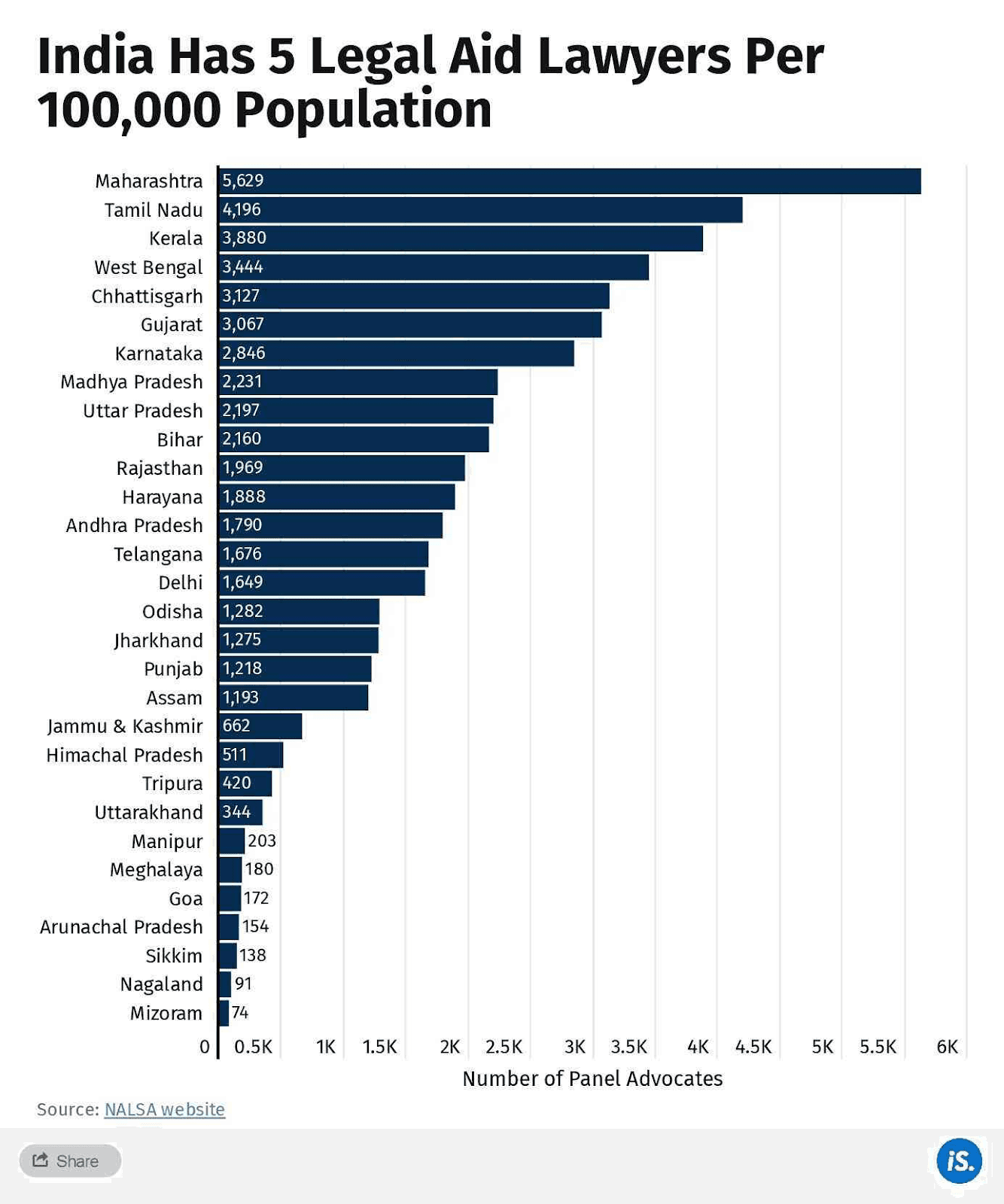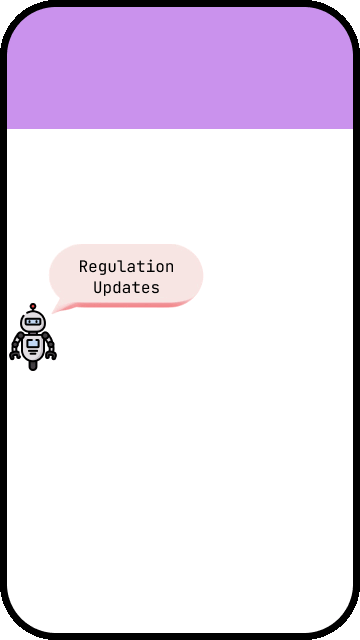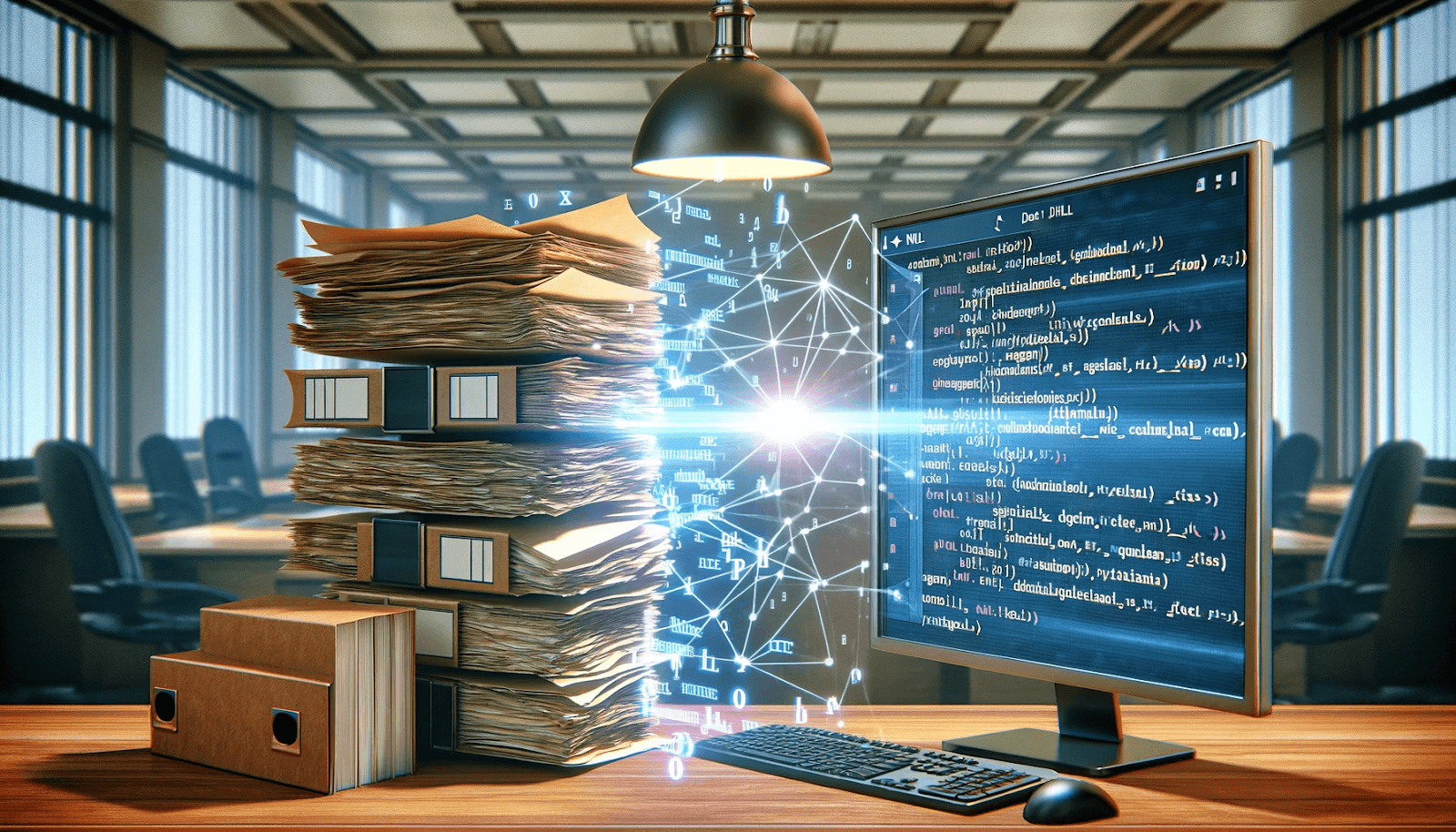AI Applications in India’s Legal Sector
People+ai is on a mission to unlock India's immense potential by leveraging artificial intelligence (AI). We believe that AI is more than just a technological advancement; it is, and will become, a key driver of transformative change, with the capacity to improve the lives of a billion people.
—
1:1800 is the stark ratio of Lawyers to the Indian population, according to CJI Gogoi. This disparity not only limits access to justice for a large portion of the population, but it also places a huge burden on legal professionals. It demands the adoption of tools that:
enhance efficiency to deliver quality legal services,
reduce menial and redundant workload for Lawyers.

Our team recently organised a focus-group discussion that brought together leaders in the field—CEOs, founders, and legal experts from various sectors—to discuss how AI can be effectively used in the legal sector and to pinpoint new opportunities for innovation.
In this blog, we present some of the key insights from the discussion, which highlighted AI use cases that can make India’s legal sector more effective.
—-
Workflow Automation - Simplifying Legal Tasks
AI can be used in the following use-cases to help automate routine tasks:
Documentation & Due Diligence: AI can augment tasks such as creating due diligence reports, contracts and other legal documents.

For demonstration purposes only; execution may differ
Document review: AI can sift through significant amounts of data and documents, spotting crucial details that might otherwise be missed.
Legal assistance chatbot: A chatbot designed for the Indian context, ready to field basic legal questions from the public, can significantly ease the load on busy lawyers. This can also be used by legal practitioners to find answers to commonly asked procedural and subject matter questions.

Regulation Monitor: An AI tool that could track documents produced by various regulatory bodies across sectors in real time and dynamically provide updates across a dashboard, would significantly ease the research tasks undertaken by lawyers.

For demonstration purposes only; execution may differ
Localised tools: From templates that speak directly to diverse Indian court requirements to digital signing solutions and compliance tools, AI can make legal workflows seamless and faster.
Markup Language: A markup language for lawyers would change the way those within the legal fraternity review and create legal text and documents. This would simplify the process of exchanging information - whether it be in filing court documents or contract drafting or exchanging information with clients.
Privacy & Confidentiality - Addressing data concerns
The fragmented nature of legal data and concerns around confidentiality are significant barriers. AI can help with the following:
Data consolidation platforms: The idea of developing a centralised legal database that aggregates case laws, statutes, and legal precedents from various Indian courts and legal bodies can help create a unified, searchable repository.
Confidentiality protection: Implementing AI systems that use advanced encryption and data anonymization techniques can improve the processing of legal information without compromising client confidentiality or sensitive case details.
Inclusion & Reach - Tackling Language Diversity
The linguistic diversity in India calls for AI solutions that go beyond English, embracing local languages to ensure broader accessibility for lawyers and clients across the country. Existing linguistic challenges can be mitigated by employing AI in the following use-cases:
Multilingual legal chatbots: Creating chatbots capable of understanding and responding in multiple Indian languages, such as Hindi, Bengali, Tamil, and Marathi, can provide basic legal guidance and information to a wider audience.
Localised legal document automation: Developing AI tools that can draft and review legal documents in various Indian languages, can help cater to the linguistic preferences of clients and legal professionals across different states.
Pedagogy & Learning - Empowering Legal Education
The potential of AI to transform legal education in India was a key discussion point in discovering new/untapped markets in the sector. Given the regional disparities in legal education access, introducing gamified learning could revolutionise how legal concepts are taught, making education more engaging and far-reaching across diverse Indian communities.

Challenges and Potential Complexities
Developing knowledge and insight management tools for the legal sector presents unique challenges:
Context: These tools must be intricately tailored to the nuanced and complex nature of legal work, which varies significantly across different areas of law.
Customization: The customization required for these tools raises questions about widespread adoption, as each legal specialty may require a different set of functionalities. Additionally, the sensitive nature of legal work adds layers of confidentiality concerns, necessitating robust security measures to protect client information.
AI Bias: A critical aspect of integrating AI into legal practices involves ensuring the data used to train these systems is as free from bias as possible. Given the legal system's role in upholding justice, any form of bias in AI tools could lead to unfair outcomes. This requires a thorough vetting process for training datasets and the development of algorithms capable of identifying and correcting biased data inputs.
Technological reluctance: Privacy concerns and the tech-cautious attitudes adopted by legacy institutions are some of the key reasons for slow adoption of technology in the sector. Privacy concerns stem from the highly confidential nature of legal work, where client data and sensitive case information must be protected at all costs.
Additionally, the judicial system's cautious approach to adopting technology reflects a broader hesitation, rooted in the desire to maintain the integrity and solemnity of legal proceedings. Overcoming this reluctance requires demonstrating not only the efficiency gains from using technology but also its ability to uphold, if not enhance, the principles of justice and confidentiality that are central to the profession.
Next steps for AI integration
The FDG was extremely insightful in exploring use cases within the legal domain. One of the fundamental points that was highlighted during the discussion was the need for backbone infrastructure upon which models and use cases could be built upon. We identified two infrastructural projects:
Markup Language for the Legal Domain: We intend to unlock a digital-first imagination for legal documents, through the creation of a standard that enables professionals to smoothly create, collaborate, share and review documents. This involves switching gears and looking at digitising legal content, for instance, in an XML format. This would simplify the process of creating/exchanging information - whether it be in filing court documents or contract drafting or exchanging information with clients.

Regulation Monitor: Regulatory information (notification, guidelines, rules etc) is constantly released by various regulatory bodies across the country. While there are many smart repositories (Manupatra, SCC) to track and store case-laws, a similar system for tracking, mapping, storing and downloading regulations are limited. We intend to create a knowledge graph for regulations, through which lawyers and other stakeholders can better update themselves and trace regulations when required.
—
Our hope is to build this infrastructure, thereby enabling different stakeholders and players in the market to innovate solutions. Use-cases such as Creation of Due Diligence reports, Localised Tools, etc., can be hosted on top of these infrastructural solutions.
We're building a community for legal and tech professionals from across domains to collaborate, ideate, and build. While we will be focusing on the aforementioned projects, we invite you to share any new ideas or express interest in contributing to any of the initiatives we've discussed.
Please reach out to us through our website.

